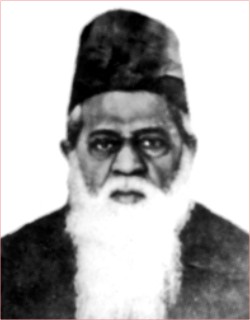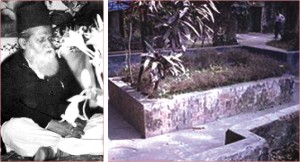Great Minds
Our Educationists:
Our role models
Md. Anwarul Kabir
 THIS series write-up intends to explore the lives of some of our illustrious educationists who enriched our knowledge and are considered as our role models for the present, past and future generations. THIS series write-up intends to explore the lives of some of our illustrious educationists who enriched our knowledge and are considered as our role models for the present, past and future generations.
Dr. Muhammed Shahidullah (1885-1969)
A number of illustrious educationists, for instances Dr. Muhammad Shahidullah, SN Bose, RC Majumdar, Haraprsad Sastri, , Shrish Chandra Chakrabarti, Quazi Motahar Hossain illuminated the campus of University of Dhaka with the light of their knowledge and ideology since its inception in 1921. Among them, perhaps, Gyan Tapash (a devotee of knowledge) Dr. Muhammed Shahidullah was one of the leading personalities whose efforts contributed much to turn this university into once the 'Oxford of the East'.
One would be amazed to learn about Dr. Shahidullah, while observing the way he reached the apex position as an educationist, writer and philologist. Born in Chabbish Parganas of West Bengal on 10 July 1885, his forefathers were wardens (Khadim) at the shrine of Pir Gorachand. However, assessing the changing socio-economic condition in Bengal even from his grandfather's generation started to look forward to other ways of subsistence. Instead of hereditary profession of being Khadim, his father Munshi Mafizuddin Ahmed worked as a clerk of Howrah District Board.
Shahidullah passed the entrance examination (equivalent to SSC) in 1904 from the Howrah Distric School in the first division. In 1906 he passed the FA examination (equivalent to HSC) from Presidency College. Subsequently, he got admission in the Hoogly College to pursue Bachelor of Arts with double Honours in Sanskrit and English. Later due to economic reason, he was compelled to join as an Assistant Teacher in Jessore Zila School. In 1909, though he sat for BA examination as a private candidate from Jssore, could not pass due to shortage of one mark. Then he returned to Calcutta again and reappeared in BA examination in 1910 as a regular student and did BA with Honours in Sanskrit.
After graduation, he started to pursue his postgraduate course in the Department of Sanskrit in the University of Calcutta. Ironically, here as a student Shahidullah had to face an awkward situation. The orthodox teachers who taught Vedic literature (Hindu scripture) refused to teach a Muslim student. Shaidullah complained to the authority and prayed for permission to allow him to attend the course. But teachers concerned, refused to listen and the syndicate failed to resolve the problem. However, Sir Ashutosh Mukherjee, the then Vice Chancellor of the university took initiative and persuaded him to join the newly established Department of Comparative Philology instead of continuing in the Department of Sanskrit. In 1912 Shahidullah appeared as the sole examinee of this department and obtained his MA degree in Comparative Philology successfully.
In 1921, when Dhaka University was founded, he joined as a lecturer in the Department of Sanskrit and Bengali. During his teaching career here, he explored the origins of the Bangla language and discarded the prevailing popular notion which stated that Bangla was a direct descendant of Sanskrit. Instead in 1925, he scientifically came to a conclusion that Bangla, in fact, originated from Gaudi or Megadhan Prakrit (or derivative of Sanskrit).
 In 1944 Shahidullah retired from Dhaka University for the first time as a Reader and Chairman of Bengali Department and subsequently joined the Bogra Azizul Haq College as the Principal. In 1944 Shahidullah retired from Dhaka University for the first time as a Reader and Chairman of Bengali Department and subsequently joined the Bogra Azizul Haq College as the Principal.
Workaholic Dr. Shahidullah after his retirement as a teacher, however, did not take retirement from work. During 1959-60 he worked as editor of the Urdu Abhidhan Prakalpa (Urdu dictionary project). In 1960 he also worked for Bangla Academy as Editor-in-Chief of the Regional Dialect Dictionary. In addition, he also worked for Islamic encyclopedia project (1961-1964) of the same academy. During his stay in Bangla Academy, perhaps his most important work was to introduce a revised Bangla Calendar.
Dr. Muhammed Shahidullah played a pivotal role in our language movement. Even before partition of the sub-continent, he reasoned in favour of Bangla as the future state language of the proposed Pakistan. Besides, Dr. Shahidullah discarded the communal notion of some Muslim League Leaders of that time towards the language Bangla and Bengali community and argued, later in 1952, as a teacher of DU, he actively participated in the language movement.
In addition to research works, he wrote for children. He also translated and edited a number of books. Noteworthy among his books are Sindabad Saodagarer Galpa (The stories of the merchant Sindbad, 1922), Bhasa O Sahitya (Language and literature, essays, 1931), Bangala Byakaran (Bangla grammar, 1936), Diwan-i-Hafiz (Poems of Hafiz, translation, 1938), Shikwah O Jawab-i-Shikwah (Questions and their answers, translation from Iqbal, 1942), Rubaiyat-i-Omar Khaiyam (Quatrains of Omar Khayyam, translation, 1942), Essays on Islam (1945), Amader Samasya (Our problems, essays, 1949), Padmavati (Volume I ed, 1950), Bangla Sahityer Katha (History of Bangla literature, Volume I in 1953, Volume II in 1965), Vidyapati Shatak (Collection of Vidyapati's songs, text analysis, 1954), Bangla Adab Ki Tarikh (History of Bangla literature, essays, in Urdu, 1957), Bangla Sahityer Itihas (History of Bangla literature, 1957), Bangala Bhasar Itibrtta (History of Bangla language, 1959), Qur'an Sharif (The Qur'an, 1963), Amarkabya (Unforgettable poetical works, 1963), Sekaler Rupkatha (Fairy tales of ancient time, 1965), etc.
For his outstanding contributions to knowledge he was honoured by many Institutions of home and abroad. He was awarded the 'Pride of Performance' by the Pakistan government, made Professor Emeritus by the University of Dhaka (1967) and awarded 'Knight of the Orders of Art and Letters' by the French government (1967) for his lifetime achievement in research on language and literature.
Dr. Shahidullah died in Dhaka on 3 July 1969 and was buried on the campus of Shahidullah Hall of the university.
(Sources: 1. State Master Encyclopedia, USA (www.statemaster.com) 2.Banglapedia 3.
Muhammad Shahidullah & His Contribution to Bengali Linguistics (www.ciil-ebooks.net) 4. Wikipedia)
(The writer is a university academic at the Department of Computer Science at AIUB.)
|
